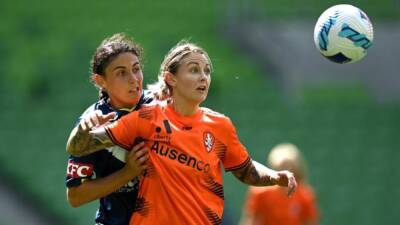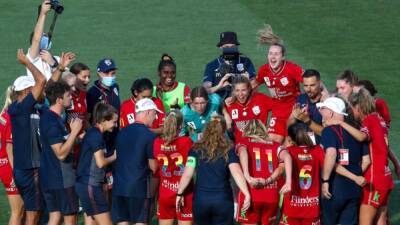The Fiona Worts 'feelgood' Maccas story highlights the unseen barriers facing A-League Women players
On Sunday afternoon, Adelaide United striker Fiona Worts equalled the A-League Women's all-time record for most goals scored by a single player in a match, netting five in the Reds' 8-2 thumping of Brisbane Roar.
Not only was it her club's biggest win in the history of the competition, but Worts also rocketed up to second on the league's Golden Boot ladder. And with just three rounds left, Adelaide could qualify for the finals series for the first time.
But the English-born forward, who has been crucial in much of the club's success, wasn't able to celebrate any of it.
Instead, a few hours after the full-time whistle, Worts was on a plane back to Adelaide from Brisbane, preparing for her morning shift at McDonald's the next day.
This is not an uncommon story among A-League Women footballers and, indeed, most women athletes around Australia.
Despite the meteoric rise of women's sport over the past five years, the vast majority of the country's top-flight women's competitions — from the A-League Women's to the AFLW, the WNBL, the NRLW, and the WBBL — remain semi-professional.
This manifests in a number of interlocking ways including through short season formats, insecure yearly contracts, inconsistent travel and medical standards, and salaries often below minimum wage. Taken together, this means the majority of the country's best women athletes must often work additional jobs just to make ends meet.
What the Worts story highlights, though, is the way in which these competitions have begun to reframe and reshape this discussion in order to escape criticism and accountability.
For example, in Adelaide, Channel 10 — the A-League Women's free-to-air broadcaster — ran a 40-second segment about Worts's achievements, including an








